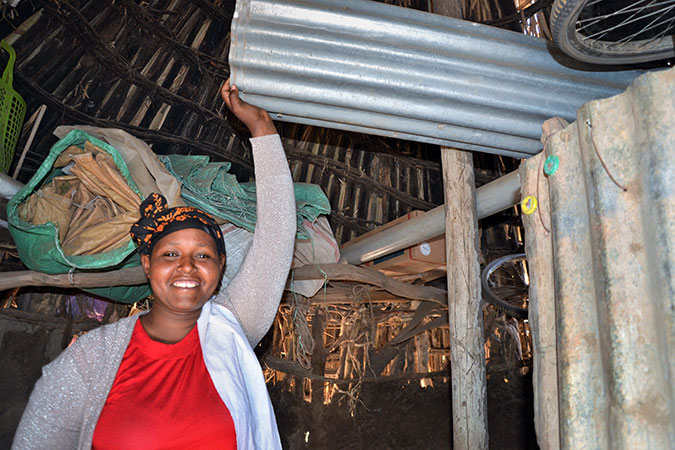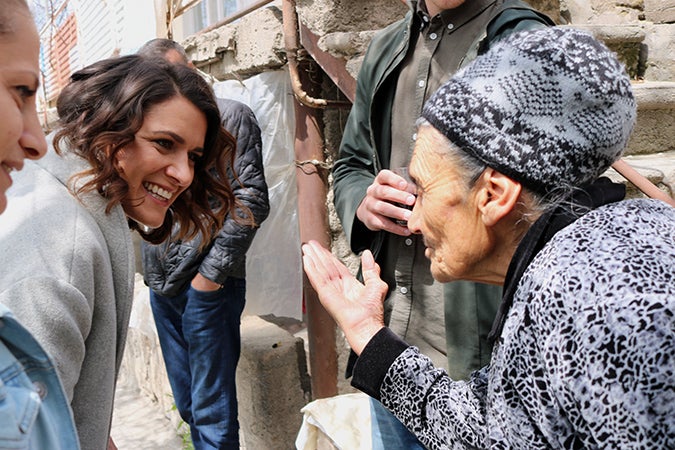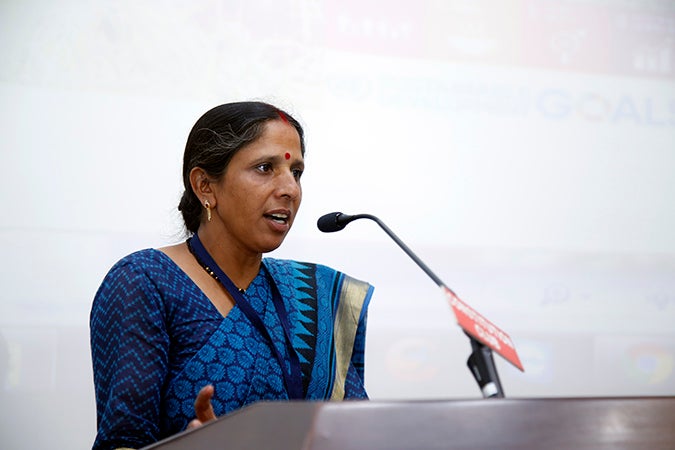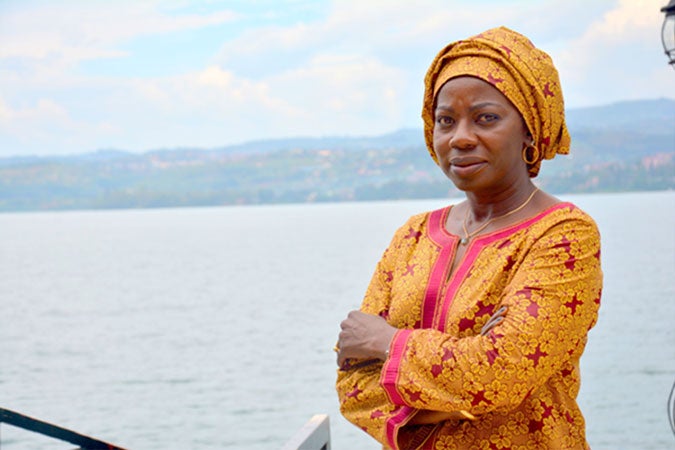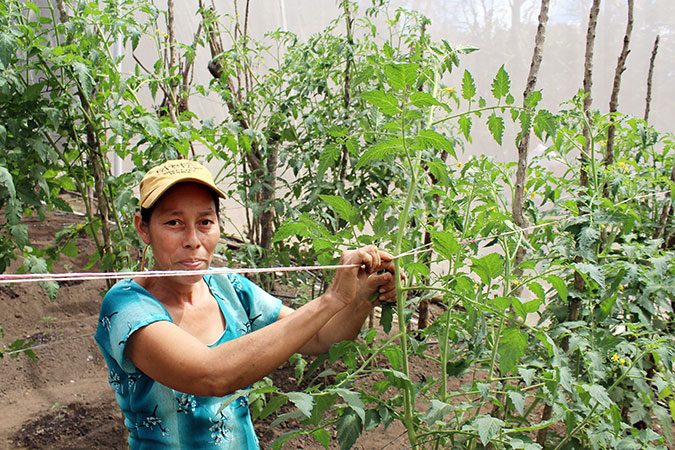In Focus: International Day of Rural Women 2017
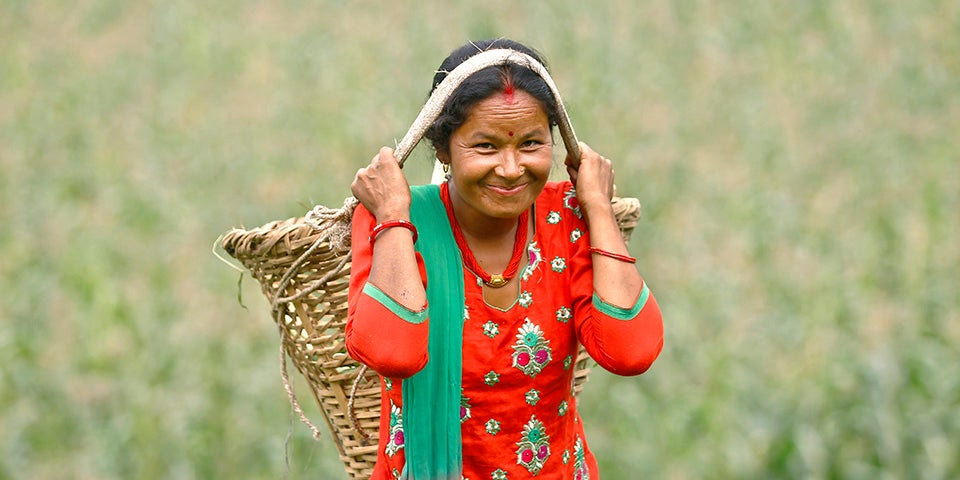
Photo: UN Women/Narendra Shrestha
Video |Top stories |Join the conversation
Rural women make up over a quarter the world population and majority of the 43 per cent of women in the global agricultural labour force. They till the lands and plant seeds to feed nations. They ensure food security for their communities and build climate resilience. But when it comes to owning land, accessing agricultural inputs, financing and technologies for climate resilience, they are left far behind men.
Rural women: the invisible mainstay of sustainability
In a statement for the International Day of Rural Women (15 October), UN Women Executive Director Phumzile Mlambo-Ngcuka highlighted the importance of the social and physical infrastructure that enables rural women’s participation in sustainable, climate-resilient agricultural production, processing, transport and marketing. Read more►
This year, International Day for Rural Women (15 October), focuses on the theme, “Challenges and opportunities in climate-resilient agriculture for gender equality and the empowerment of rural women and girls”. The International Day for Rural Women is followed by World Food Day (16 October, themed, “Change the future of Migration: Invest in Food Security and Rural Development”) and International Day for the Eradication of Poverty (17 October)—highlighting issues that are inextricably linked with rural women’s empowerment.
With changing climate, women’s already unequal access to land, water and energy is further impacted. At the same time, existing gender inequalities and discriminations that constrain rural women’s decision-making power and participation in their households and their communities, are exacerbated by climate change and climate disasters. For instance, as floods and droughts increase, rural women and girls spend more time and effort to collect and secure water and fuel, missing out on education and income-generating opportunities.
A changing climate also means that there is a shrinking window of opportunity to close gender gaps in agriculture. A vast majority of the world’s poor live in rural areas, and closing the gender gaps in agriculture is essential for ensuring food security, building climate resilience and ending poverty. It will enable women farmers to adopt climate-resilient agricultural approaches at the same rate as men and increase overall agricultural productivity. According to some estimates, women’s equal access to land and other productive assets could increase agricultural outputs by up to 20 per cent in Africa.
UN Women supports efforts to increase women farmers’ access to land, financing, climate information and climate-smart technologies to achieve gender equality through climate-resilient agriculture, as well as enhancing their capacity to move up green agricultural value chains.
Rural women—agents of change fighting poverty, hunger and climate change
Top stories
Women entrepreneurs in Ethiopia lead the way from poverty to empowerment
For Kebela Gure, 30-year-old mother of five from Ethiopia, a good education for her children and an improved family income were the priorities. The income of her husband, a smallholder farmer, depended on seasonal rain. It was barely enough to feed the family. A joint UN programme helped Gure access small loans and learn business skills. Read more►
Empowering women in the farthest corners of Armenia
In most rural areas in Armenia, people rely on small scale and subsistence farming. Due to the lack of appropriate processing equipment, women farmers couldn’t rely on sustainable income from their produce. A UN Women Fund for Gender Equality programme is supporting women farmers in remote villages, providing them with equipment and training to diversify and market their produce. Read more ►
In the words of Sunita Kashyap: “We believe in trade, not aid”
Before Sunita Kashyap founded Umang, a rural women’s organization, she farmed with her husband, but her work wasn’t perceived to be of equal value. Today, as part of Umang, 3,000 women farmers in India are making and selling their own produce. They are farmers, entrepreneurs, auditors and accountants of their self-help groups. Read more ►
Take five: Empowering women through climate-smart agriculture in the DRC
Consistently higher temperatures and heavier floods and drought are impacting small women farmers disproportionately. UN Women’s climate-smart agriculture programme will improve women’s access to land, technology and information, as well as their access to markets and the green value chain. Read more ►
In El Salvador, rural women plant seeds of independence
In El Salvador, where land ownership still remains a barrier for women, a rural women’s cooperative has paved the way for income, access to public services and legal support for women farmers. Read more ►
Rural women fight climate change in Morocco
Rural women are often more vulnerable to the impact of climate change as their livelihoods depend on agriculture. In Morocco, women farmers are preserving and planting traditional seeds to mitigate the effects of climate change. Supported by UN Women, they launched the “Seed Caravan”, which encourages women to share seeds and expertise, and raise awareness on the impacts of climate change.
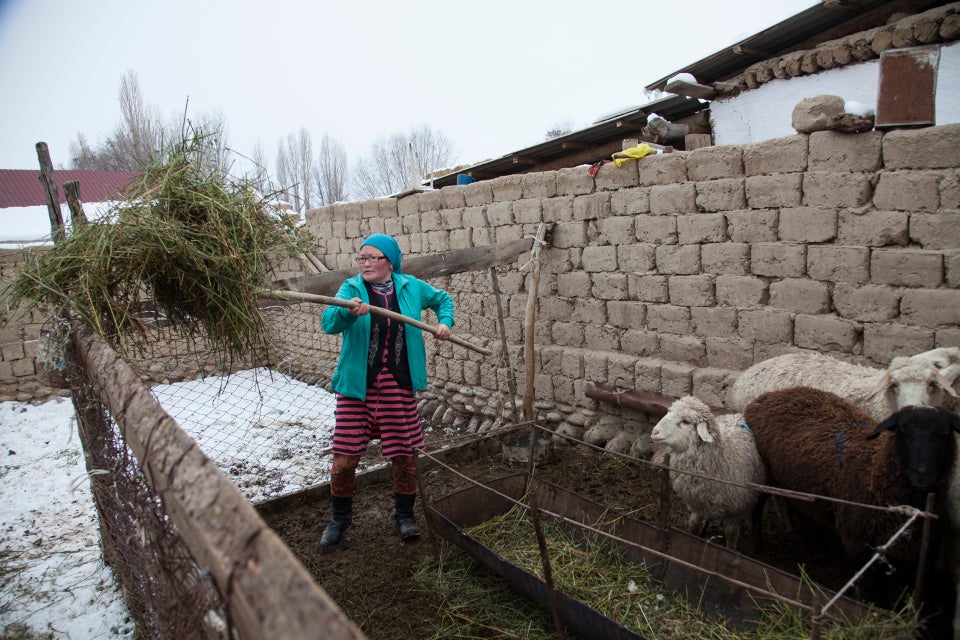
Photo Essay: Rural women across Europe and Central Asia empower their communities despite challenges
Women are central to the development of rural areas and to national economies. They account for a significant proportion of agricultural labour, play a key role in food production, especially in subsistence farming, and perform most of the unpaid care work in rural areas. Across Europe and Central Asia, UN Women aims to accelerate rural women's economic empowerment. Read more►
Join the conversation
Join the conversation around the International Day for Rural Women using the hashtag #ruralwomen.
#ruralwomen TweetsFollow us:
@un_women, @onumujeres, @onufemmes, @phumzileunwomen, @UNWomen4Youth on Twitter
UN Women, ONU Mujeres, ONU Femmes, on Facebook
unwomen on Snapchat
UN Women on Google+
UN Women on Instagram
UN Women on Pinterest
UN Women on LinkedIn
See our coverage of International Day for Rural Women, World Food Day and International Day for the Eradication of Poverty from previous years: 2016, 2015, 2014, 2013, 2012, 2011
